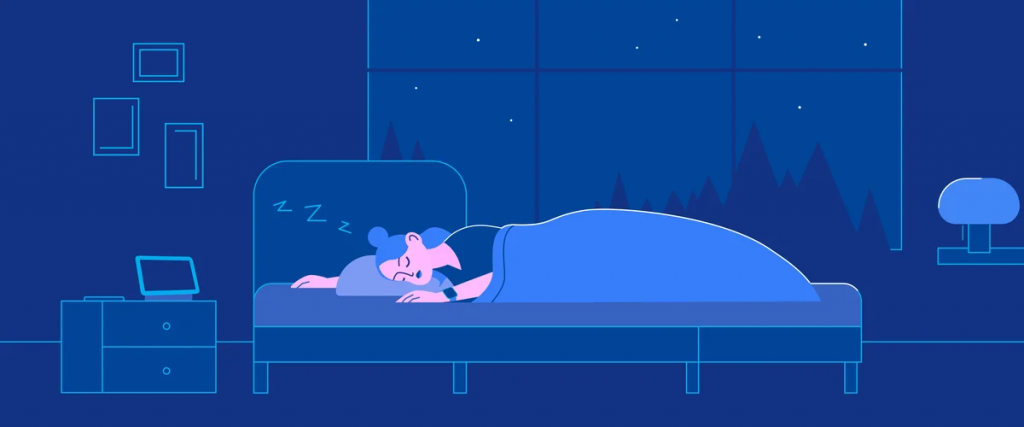Many people believe that a nightcap can help them drift off to sleep faster, but is this commonly held belief really true? In this article, we will delve into the myths and facts surrounding alcohol and sleep, exploring the impact that drinking can have on our ability to get a good night’s rest. Let’s separate fact from fiction and uncover the truth about how alcohol affects our sleep patterns.

The Link Between Alcohol and Sleep Quality
Alcohol consumption has long been associated with poor sleep quality, but is this link based on facts or just myths? Let’s delve into the relationship between alcohol and sleep to separate fact from fiction.
Myths:
- Alcohol helps you fall asleep faster.
- Drinking alcohol before bed improves the quality of sleep.
- A nightcap is a harmless way to relax and unwind before bedtime.
Facts:
- While alcohol may help you fall asleep faster, it disrupts the sleep cycle and leads to poor quality sleep.
- Alcohol suppresses REM sleep, the stage of sleep crucial for cognitive function and memory consolidation.
- Regular alcohol consumption can lead to an increase in sleep disorders like insomnia and sleep apnea.
Debunking Common Myths About Alcohol Consumption and Sleep
There are many misconceptions surrounding the relationship between alcohol consumption and sleep. Let’s debunk some common myths to provide you with accurate information:
- Myth: Alcohol helps you fall asleep faster.
- Fact: While alcohol can initially make you feel drowsy, it disrupts your sleep cycle, leading to fragmented, poor-quality sleep.
- Myth: A nightcap improves the quality of sleep.
- Fact: Regular alcohol consumption before bed can interfere with your REM (rapid eye movement) sleep, which is crucial for restorative rest.
- Myth: Alcohol is harmless for sleep if consumed in moderation.
- Fact: Even small amounts of alcohol can impact your sleep patterns and overall sleep quality.
It’s important to be mindful of the effects of alcohol on your sleep and consider making healthier choices to ensure a good night’s rest.
Effects of Alcohol on Different Stages of Sleep
Many people believe that alcohol helps them fall asleep faster and sleep more soundly. However, the reality is quite different. While alcohol may make you feel drowsy and help you fall asleep quicker, it actually disrupts the different stages of your sleep cycle.
:
- Stage 1 (Light Sleep): Alcohol can reduce the time spent in this stage, leading to increased awakenings during the night.
- Stage 2 (Deep Sleep): While alcohol may initially increase the amount of time spent in this stage, it can disrupt the restorative quality of deep sleep.
- Stage 3 (REM Sleep): Alcohol suppresses REM sleep, which is essential for cognitive function and memory consolidation.
Overall, while alcohol may help you fall asleep faster, it negatively impacts the quality of your sleep. This can lead to feelings of fatigue, impaired cognitive function, and mood disturbances the next day. It’s important to be aware of these effects and practice healthy sleep habits to ensure you get the restorative sleep your body needs.
Recommendations for a Better Night’s Sleep Despite Alcohol Consumption
Despite popular belief, consuming alcohol before bed does not always guarantee a restful night’s sleep. While it is true that alcohol can make you feel drowsy and help you fall asleep faster, it can also disrupt your sleep cycle and prevent you from getting the quality rest your body needs. Here are some recommendations to help you achieve a better night’s sleep even after consuming alcohol:
- Avoid binge drinking: Limit your alcohol consumption to a moderate amount to minimize its negative effects on your sleep.
- Hydrate: Drink plenty of water before going to bed to counteract the dehydrating effects of alcohol.
- Create a relaxing bedtime routine: Engage in calming activities such as reading a book or taking a warm bath to help your body unwind before sleep.
By following these recommendations, you can improve the quality of your sleep even if you choose to enjoy a drink or two before bed. Remember that moderation is key when it comes to alcohol consumption and its impact on your sleep patterns.
In conclusion, the relationship between alcohol and sleep is complex and multifaceted. While many myths surround the effects of alcohol on our sleep patterns, it is crucial to separate fact from fiction. By understanding the true impact of alcohol on our bodies and minds, we can make informed decisions about our consumption and prioritize getting the restorative sleep we need. So, next time you pour yourself a nightcap, remember to consider how it may affect your sleep and overall well-being. Sweet dreams!

